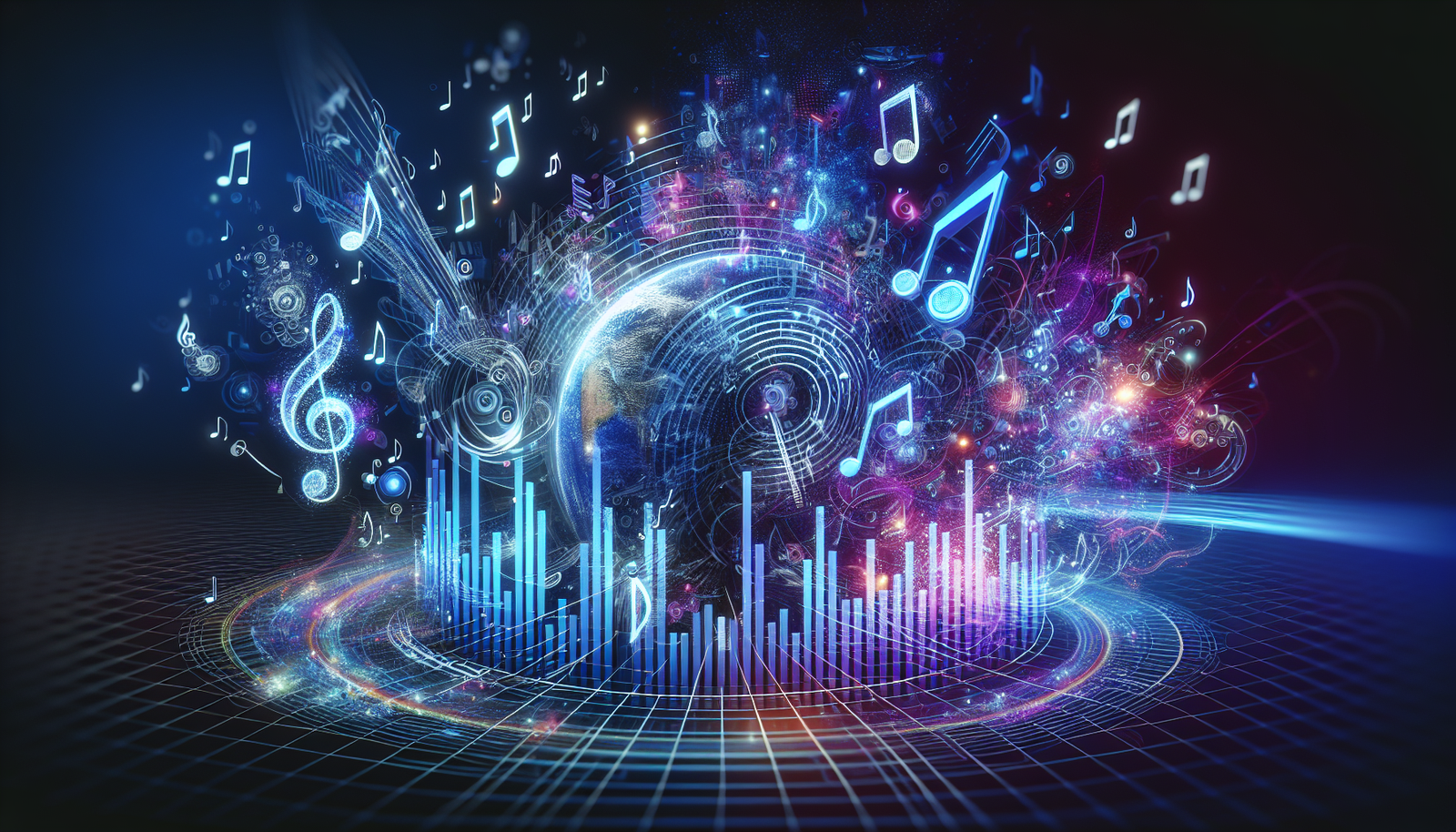The emergence of AI-generated music is disrupting the streaming landscape. The platform Deezer is facing an exponential rise in music creations stemming from artificial intelligence. On this dynamic stage, legitimacy, creativity, and copyright issues are sparking heated debates. The phenomenon, where AI-generated tracks already represent 18% of new creations, raises thorny questions concerning *the place of artists* and *the very essence of music*. In this thrilling debate, how to navigate through this innovation?
The exponential rise of AI-generated music
Streaming platforms like Spotify, Apple Music, and Deezer are facing a proliferation of music generated by artificial intelligences. The phenomenon is gaining momentum, with statistics revealing that these tracks account for about 18% of music creations. In numerical terms, this amounts to over 20,000 songs added daily to approximately 150,000 titles uploaded every day.
Deezer’s response to the threat of AI music
In the face of this avalanche of titles, Deezer has decided to implement an advanced AI music detection tool. This system, introduced in January, has allowed for the identification of nearly 10,000 titles entirely created by artificial intelligences each day. These pieces represent around 10% of new content, highlighting the urgency for an appropriate response.
Management of AI-generated content
Deezer is taking proactive steps to prevent the pollution of its music catalog. AI-generated titles are clearly labeled as such, allowing users to quickly identify them. This transparency, essential in the current context, is accompanied by the removal of pieces from these algorithms so they do not appear in users’ recommendations.
Only a few exceptions, such as some highly-streamed titles, manage to retain their place on the platform. The majority, often produced by programs like Suno and Udio, are generally viewed as means of fraud to generate listens and illicitly obtain royalties.
Divergent views on the use of AI in music
Perspectives within the music industry vary. While Deezer advocates for regulation to protect artists and ensure that platforms only compensate authentic creators, its competitor, Spotify, seems to adopt a less combative approach. Gustav Soderstrom, co-president of Spotify, sees AI as a creativity-amplifying tool, enabling a larger number of people to express themselves artistically without needing advanced technical skills.
Artists facing this new reality
Some artists are hesitant towards this technology. Iconic figures such as Damon Albarn and Kate Bush have recently taken a stance by releasing an album composed solely of silence, as a protest against what they deem a plundering of their works. The issue of copyright, particularly concerning the unauthorized use of voices, has sparked a broad debate within the artistic community.
Artists like Billie Eilish and Doechii have also signed a collective letter denouncing predatory practices regarding the use of their voices by artificial intelligences. This topic proves to be highly sensitive and draws attention to the ethical and legal issues surrounding music creation in the AI era.
The phenomenon of AI-generated music is in constant evolution, both in streaming platforms and in discussions within the music industry. Managing this new musical landscape poses a major challenge for all stakeholders involved.
To follow the innovations of AI in the musical field, check out this article on new audio creations. Another current topic highlighting the impact of contemporary media is available on the manipulation of opinions on TikTok.
FAQ on the rise of AI-generated music on Deezer
What are the reasons for the increase in AI-generated music on Deezer?
The rise is mainly due to the ease of use of AI-powered music creation tools, allowing a greater number of people to produce tracks in record time.
What percentage of new songs on Deezer are generated by AI?
Currently, around 18% of the creations uploaded daily on Deezer come from AI, representing over 20,000 titles daily.
How does Deezer manage AI-generated music?
Deezer uses an advanced music detection tool to identify songs created by AI and label them as such, so users are informed of their origin. Moreover, these tracks are excluded from recommendation algorithms.
Do AI-generated music pollute Deezer’s catalog?
Yes, tracks produced by AI can alter the quality of the catalog, and some are used by fraudsters to generate listens to claim royalties.
What actions does Deezer consider to protect artists?
Deezer aims to legislate to ensure that artists are fairly compensated for their work rather than allowing AI-generated creations to profit from royalty systems.
How does this trend affect artists’ copyright?
The rise of AI-generated music raises complex questions about copyright, particularly concerning the unauthorized use of artists’ voices.
What are the artists’ reactions to this evolution of the music landscape?
Many artists have expressed their disagreement with the use of AI in music, even collaborating to denounce this phenomenon seen as a plundering of their creations.
How can users recognize an AI-generated song?
Users can identify AI-generated songs through the label “IA Generated” that appears clearly on these tracks in the Deezer interface.
Is Deezer planning to change its policy regarding AI-generated music?
Deezer continues to adapt its policy in response to the increase of these contents. Adjustments may be adopted to better protect artists and improve user experience.
Is this trend towards AI-generated music a threat to traditional artists?
Many believe it could constitute a threat by diminishing the value of human music, while others think it could enrich creativity by providing new opportunities.






